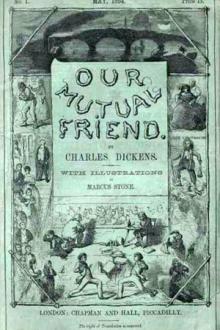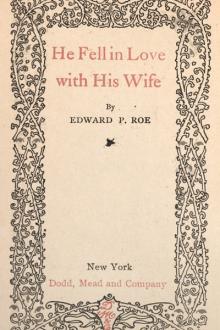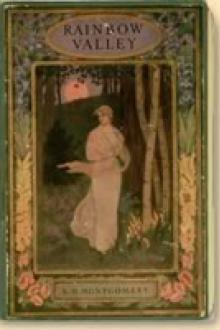Genre Fiction. Page - 267

ine at Veneerings, expressly to meet the Member, the Engineer, the Payer-off of the National Debt, the Poem on Shakespeare, the Grievance, and the Public Office, and, dining, discovered that all of them were the most intimate friends Veneering had in the world, and that the wives of all of them (who were all there) were the objects of Mrs Veneering's most devoted affection and tender confidence.
Thus it had come about, that Mr Twemlow had said to himself in his lodgings, with his hand to his forehead: 'I must not think of this. This is enough to soften any man's brain,'--and yet was always thinking of it, and could never form a conclusion.
This evening the Veneerings give a banquet. Eleven leaves in the Twemlow; fourteen in company all told. Four pigeon-breasted retainers in plain clothes stand in line in the hall. A fifth retainer, proceeding up the staircase with a mournful air--as who should say, 'Here is another wretched creature come to dinner; such is life!'--announces, 'Mis-ter Twemlow!'

Stubener, "an' a trail that'd break your heart."
Breakfast consisted of black coffee, sourdough bread, and an immense quantity of bear-meat broiled over the coals. Of this the young fellow ate ravenously, and Stubener divined that both the Glendons were accustomed to an almost straight meat diet. Old Pat did all the talking, though it was not till the meal was ended that he broached the subject he had at heart.
"Pat, boy," he began, "you know who the gentleman is?"
Young Pat nodded, and cast a quick, comprehensive glance at the manager.
"Well, he'll be takin' you away with him and down to San Francisco."
"I'd sooner stay here, dad," was the answer.
Stubener felt a prick of disappointment. It was a wild goose chase after all. This was no fighter, eager and fretting to be at it. His huge brawn counted for nothing. It was nothing new. It was the big fellows that usually had the streak of fat.
But old Pat's Celtic wrath flared up, and his voice was harsh with comm

doomed.
"Look here!" Ross came to the table, his hand sweeping past Karara, as he used his forefinger for a pointer. "We know that what we want could be easily overlooked, even with the dolphins helping us to check. This whole area's too big. And you know that it is certain that whatever might be down there would be hidden with sea growths. Suppose ten of us start out in a semi-circle from about here and go as far as this point, heading inland. Video-cameras here and here ... comb the whole sector inch by inch if we have to. After all, we have plenty of time and manpower."
Karara laughed softly. "Manpower--always manpower, Ross? But there is woman-power, too. And we have perhaps even sharper sight. But this is a good idea, Gordon. Let me see--" she began to tell off names on her fingers, "PaKeeKee, Vaeoha, Hori, Liliha, Taema, Ui, Hono'ura--they are the best in the water. Me ... you, Gordon, Ross. That makes ten with keen eyes to look, and always there are Tino-rau and Taua. We will take suppli

call her superstitious. She has an odd belief in dreams and we have not been able to laugh it out of her. I must own, too, that some of her dreams--but there, it would not do to let Gilbert hear me hinting such heresy. What have you found of much interest, Susan?" Susan had given an exclamation. "Listen to this, Mrs. Dr. dear. 'Mrs. Sophia Crawford has given up her house at Lowbridge and will make her home in future with her niece, Mrs. Albert Crawford.' Why that is my own cousin Sophia, Mrs. Dr. dear. We quarrelled when we were children over who should get a Sunday-school card with the words 'God is Love,' wreathed in rosebuds, on it, and have never spoken to each other since. And now she is coming to live right across the road from us." "You will have to make up the old quarrel, Susan. It will never do to be at outs with your neighbours." "Cousin Sophia began the quarrel, so she can begin the making up also, Mrs. Dr. dear," said Susan loftily. "If she does I hope I am a good enough Christian to meet her ha

there rang out overhead a startling cry from the crow's-nest:
"Something ahead, sir--can't make it out."
The first officer sprang to the engine-room telegraph and grasped the lever. "Sing out what you see," he roared.
"Hard aport, sir--ship on the starboard tack--dead ahead," came the cry.
"Port your wheel--hard over," repeated the first officer to the quartermaster at the helm--who answered and obeyed. Nothing as yet could be seen from the bridge. The powerful steering-engine in the stern ground the rudder over; but before three degrees on the compass card were traversed by the lubber's-point, a seeming thickening of the darkness and fog ahead resolved itself into the square sails of a deep-laden ship, crossing the Titan's bow, not half her length away.
"H--l and d--" growled the first officer. "Steady on your course, quartermaster," he shouted. "Stand from under on deck." He turned a lever which closed compartments, pushed a button marked--"Captain's Room," and cr

on them. Could I be one of their flattering panders, I would hang on their ears like a horseleech, till I were full, and then drop off. I pray, leave me. Who would rely upon these miserable dependencies, in expectation to be advanc'd to-morrow? What creature ever fed worse than hoping Tantalus? Nor ever died any man more fearfully than he that hoped for a pardon. There are rewards for hawks and dogs when they have done us service; but for a soldier that hazards his limbs in a battle, nothing but a kind of geometry is his last supportation.
DELIO. Geometry?
BOSOLA. Ay, to hang in a fair pair of slings, take his latter swing in the world upon an honourable pair of crutches, from hospital to hospital. Fare ye well, sir: and yet do not you scorn us; for places in the court are but like beds in the hospital, where this man's head lies at that man's foot, and so lower and lower. [Exit.]
DELIO. I knew this fellow seven years in the galleys For a notorious murder; and 'twas thought The cardinal

No matter how exciting a tale we might be rehearsing, the mere shifting of a cloud shadow in the landscape near by was sufficient to change our impulses; and soon we were all chasing the great shadows that played among the hills. We shouted and whooped in the chase; laughing and calling to one another, we were like little sportive nymphs on that Dakota sea of rolling green.
On one occasion I forgot the cloud shadow in a strange notion to catch up with my own shadow. Standing straight and still, I began to glide after it, putting out one foot cautiously. When, with the greatest care, I set my foot in advance of myself, my shadow crept onward too. Then again I tried it; this time with the other foot. Still again my shadow escaped me. I began to run; and away flew my shadow, always just a step beyond me. Faster and faster I ran, setting my teeth and clenching my fists, determined to overtake my own fleet shadow. But ever swifter it glided before me, while I was growing breathless and hot

en thought ofvery much else except the harmony and good comradeship which bless people whoare suited to each other. He had been disappointed in no respect; they hadtoiled and gathered like ants; they were confidential partners in the homelybusiness and details of the farm; nothing was wasted, not even time. Thelittle farmhouse abounded in comfort, and was a model of neatness and order.If it and its surroundings were devoid of grace and ornament, they were notmissed, for neither of its occupants had ever been accustomed to such things.The years which passed so uneventfully only cemented the union and increasedthe sense of mutual dependence. They would have been regarded as exceedinglymatter-of-fact and undemonstrative, but they were kind to each other andunderstood each other. Feeling that they were slowly yet surely gettingahead, they looked forward to an old age of rest and a sufficiency for theirsimple needs. Then, before he could realize the truth, he was left alone ather wintry grave;

says it would hurt Aunt Martha's feelings. Anne dearie,believe me, the state of that manse is something terrible.Everything is thick with dust and nothing is ever in its place.And we had painted and papered it all so nice before they came."
"There are four children, you say?" asked Anne, beginning tomother them already in her heart.
"Yes. They run up just like the steps of a stair. Gerald's theoldest. He's twelve and they call him Jerry. He's a clever boy.Faith is eleven. She is a regular tomboy but pretty as apicture, I must say."
"She looks like an angel but she is a holy terror for mischief,Mrs. Dr. dear," said Susan solemnly. "I was at the manse onenight last week and Mrs. James Millison was there, too. She hadbrought them up a dozen eggs and a little pail of milk--a VERYlittle pail, Mrs. Dr. dear. Faith took them and whisked down thecellar with them. Near the bottom of the stairs she caught hertoe and fell the rest of the way, milk and eggs and all. You canimagine the re
